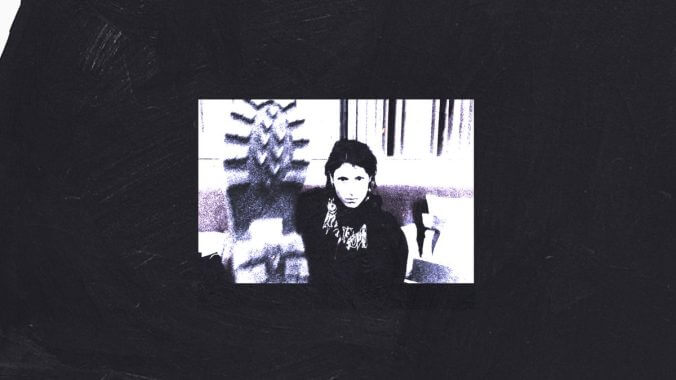Tomorrow’s Fire Signals a New Era of Squirrel Flower
On her best album to date, the Chicago-based project of Ella Williams leans harder than ever into an explosive rock sound.

Though her career started in the late 2010s, few artists today feel as tied to these last three years than Squirrel Flower. Her Polyvinyl debut, I Was Born Swimming, arrived just a month into 2020 and, for many listeners, it seemed as though she’d emerged as a fully formed artist—with titanic songs like “Red Shoulder” innately at her disposal. As the years have worn on, she has become a veritable font for thought-provoking, beautiful indie folk. A particularly versatile writer, she sounds just as confident performing anthemic rock songs like “Roadkill” as she does wandering folk ballads like “Iowa 146.” At the heart of every Squirrel Flower song, though, is Ella Williams. The Massachusetts-born singer and songwriter, now based in Chicago, is prolific, having released three projects—two albums and an EP—in as many years, strongly evolving with each passing project.
Her third album, Tomorrow’s Fire, is her best work. Leaning in harder than ever to rock music, the roiling catharsis so often found in Williams’ vocal performance now bleeds into the production. Tomorrow’s Fire is lean, clocking in at 34 minutes across 10 tracks, but Williams doesn’t waste a second of it. She produced the album, along with current indie rock go-to Alex Farrar at Drop of Sun Studios in Asheville. Alongside Williams, the album features performances from Matt McCaughan and Seth Kauffman, who have played with the likes of Bon Iver and Angel Olsen for years. Also featured here on guitar is one MJ Lenderman, who’s distinct style meshes well with Williams’ most fearsome arrangements.
Given her second album, Planet (i), was a concept record about the place humanity will abscond to after rendering Earth uninhabitable, it would be fair to assume Tomorrow’s Fire covers similar thematic ground. Instead, the title comes from that of her great-grandfather’s novel (a quote he hawked from the Medieval French poet Rutebeuf, “Tomorrow’s hopes provide my dinner / Tomorrow’s fire must warm tonight.”) It’s the kind of obscure literary inspiration that just makes sense as something that would speak to an artist like Squirrel Flower. By Williams’ approximation, that fire is solace, a means for us to face the darkness of everyday life.
Released in tandem with the album’s announcement, “Full Time Job” and “When a Plant Is Dying” both feel cut from the same cloth. They each find their narrator on edge. The former is caught in a cycle that befalls creatives with as much ambition as Williams seems to hold—the constant need to be making things can feel like it’s creeping up behind you. She boils this down to the crushing line “taking it easy is a full-time job / one I’m tired of.” Similarly, the chorus of “When a Plant is Dying” includes the phrase “there must be more to life than being on time.” This is, perhaps, the swiftest kick Williams has ever written. It’s the kind of line that, at first, feels unassuming before it hits you—subsequently staying with you every time you feel the panic of waking up a little later than planned. Williams is right, we weren’t made to suffer this specific angst. Both songs’ protagonists are reaching a breaking point, and the raw edge to them is mirrored in the music. Guitars shred and distort, drums ring out through the chaos. It’s as though the songs are an exercise in relief, the sonic equivalent of those rooms where you pay to smash chairs or whip a vase at the wall.
-

-

-

-

-

-

-

-

-

-

-

-

-

-

-

-

-

-

-

-

-

-

-

-

-

-

-

-

-

-

-

-

-

-

-

-

-

-

-

-








































